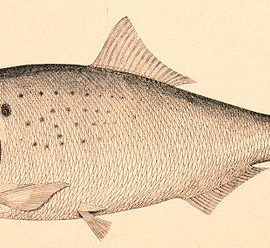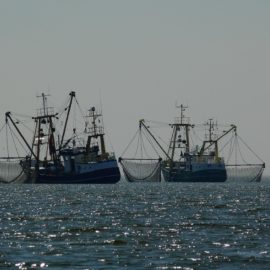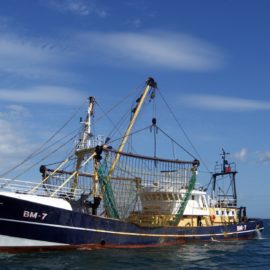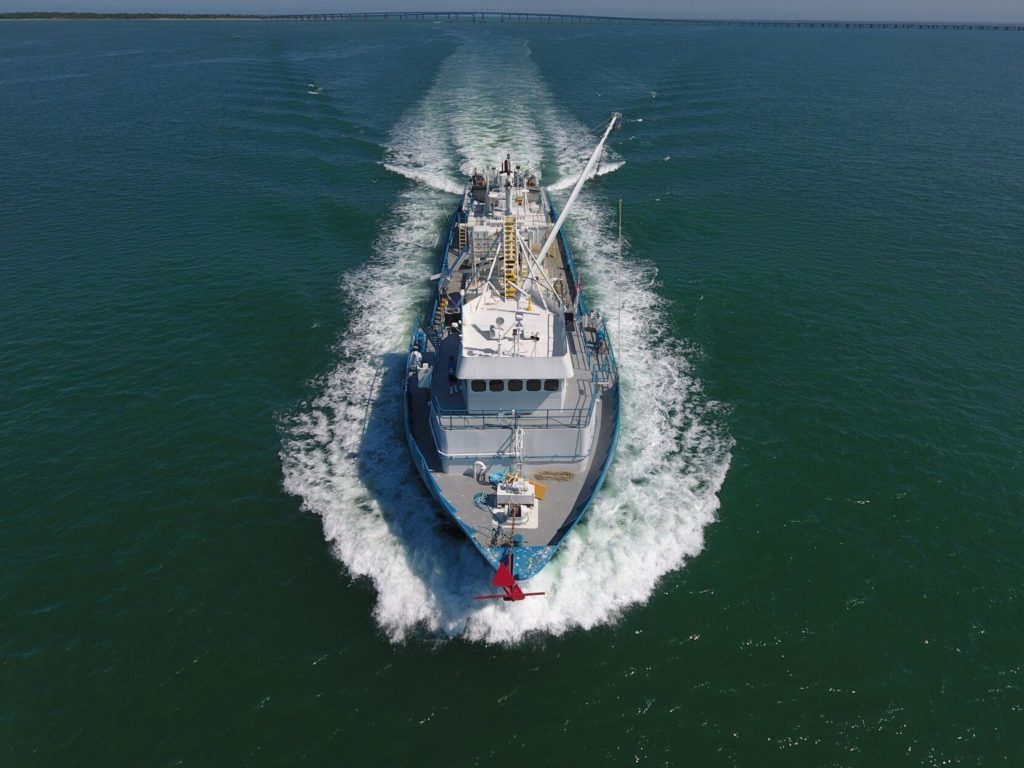
PHOTO FROM OMEGA PROTEIN
What is the largest catch of fish in Louisiana? Shrimp? Oysters? No, it is pogies or menhaden.
A bill that would put the first substantial limits on Louisiana’s largest but least-known commercial fishery could improve the health of the Gulf of Mexico but cripple the economies of some coastal communities. House Bill 1033 would cap the menhaden catch in Louisiana waters at 573 million pounds per year – an amount that far exceeds the state’s combined annual catch of shrimp, oyster, crab and crawfish but falls far below the unrestricted hauls the menhaden industry has enjoyed for decades. The bill would also require menhaden fishing vessels to file daily reports on catch amounts and locations, creating a level of accountability that the bill’s proponents say has been sorely lacking. “We owe it to our coast, our state and ourselves to understand and manage this fishery properly,” David Cresson, CEO of the Coastal Conservation Association of Louisiana. “Right now we don’t and it’s not.”
nola.com
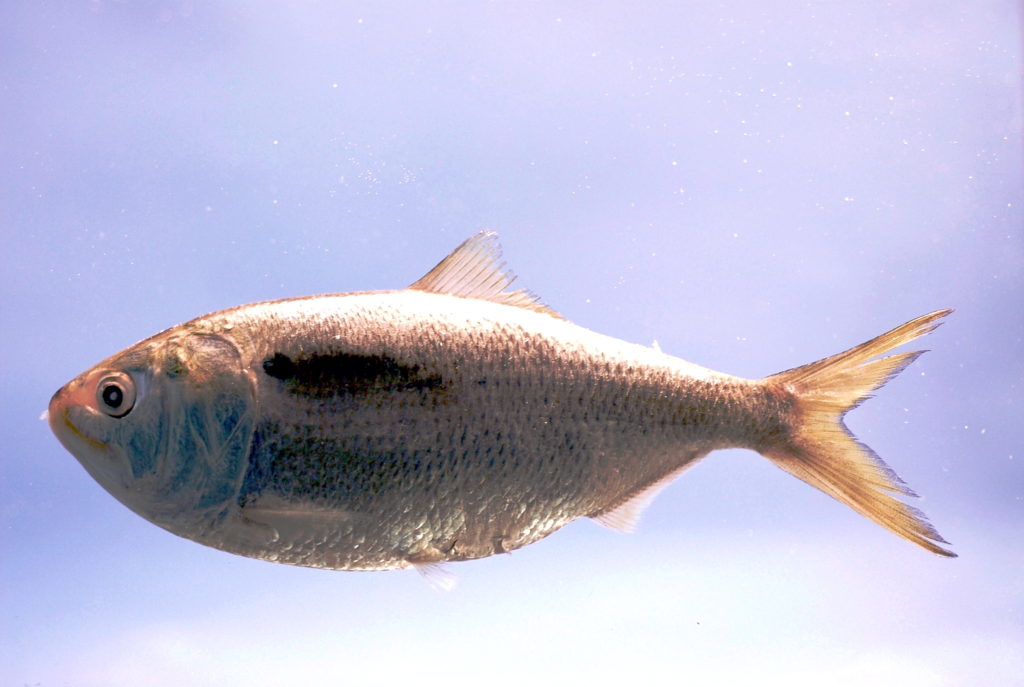
The industry says this will force the closure of two processing plants.
Still, industry officials say the bill could force the closure of the state’s two menhaden processing plants, putting hundreds of people out of work in areas with few other job prospects. “This bill is going to close us down in a couple years, and it’s going to have a direct impact on Plaquemines Parish,” said Shane Treadaway, a fleet manager for Daybrook Fisheries in Empire. The bill passed out of the House Natural Resources and Environment Committee by a 9 to 3 vote last week and will be debated on the House floor Tuesday.
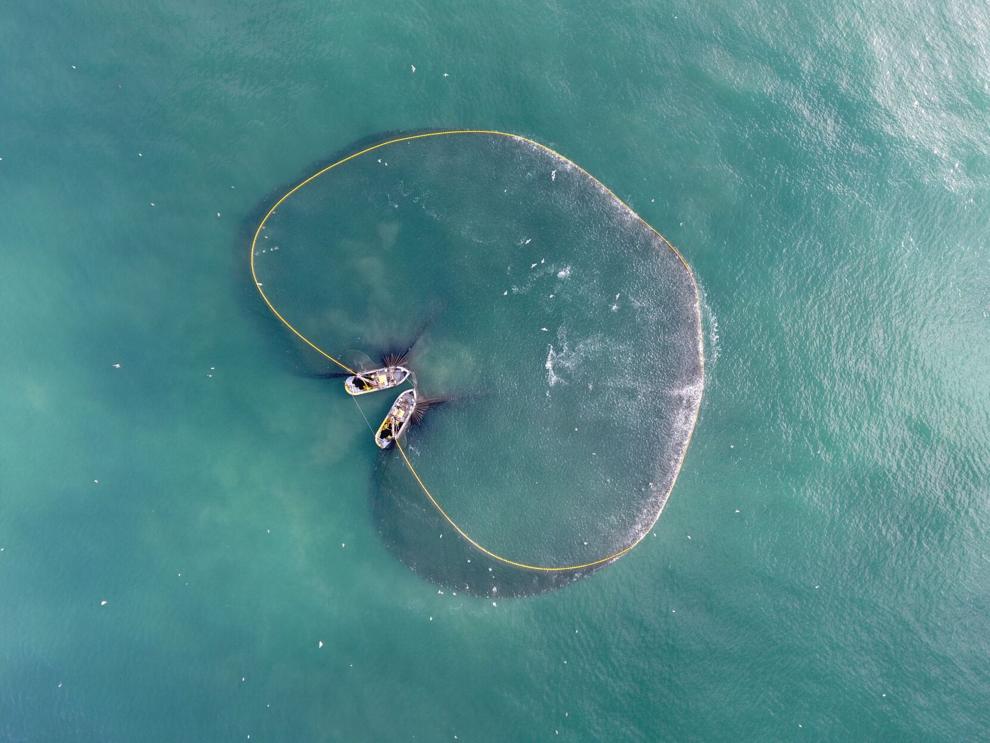
PHOTO FROM OMEGA PROTEIN
Gloom and doom as usual but this action will help the sport fish.
Menhaden, also called pogies and bunker, are a tiny, oily fish used primarily in fertilizers and food for cats, hogs and chickens. Their oil is also added to cosmetics, soap, omega-3 fatty acid pills and other health supplements. Two foreign-owned companies – Omega Protein of Canada and Daybrook of South Africa – dominate the Louisiana menhaden fishery, which has produced an annual catch worth an average of $80 million since 2010. During that time, the yearly catch has ranged between 612 million and 1.1 billion pounds. With no catch limits, Louisiana has the Gulf’s most lax menhaden regulations. Texas sets a catch limit and prohibits menhaden fishing within a half-mile of its coast, and Mississippi recently joined Alabama in enacting statewide 1-mile buffer zones. Meanwhile, Florida has a blanket ban on large-scale net fishing in its waters.
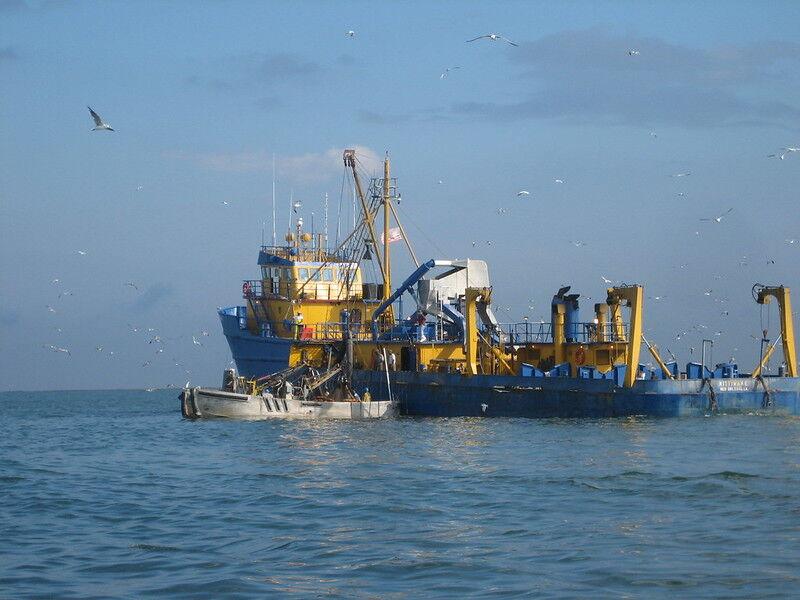
PHOTO PROVIDED BY HEALTHY GULF
I would worry about over fishing and exhausting the crop.
Supporters say the bill is a long-overdue check on industrial-scale harvests of a fish that supports much of the Atlantic food chain. Whales, seabirds and dolphins eat menhaden, as do fish popular with anglers, like redfish, trout and bass. While Gulf menhaden populations appear stable, anglers blame the menhaden industry for the decline of prized catches in areas regularly swept over by 1,500-foot-long menhaden nets. “If you do wholesale removal of menhaden, it takes away food from Sportsman Paradise species,” said the bill’s sponsor, Rep. Joseph Orgeron, R-Larose. What’s more, menhaden nets snag more than menhaden. The state Department of Wildlife and Fisheries has received an increasing number of complaints about menhaden bycatch and the trails of dead redfish and trout left in the wakes of menhaden ships, which sometimes come within a few hundred yards of the shore. “With this indiscriminate type of take, everything is affected,” Orgeron said.
As usual, it ends up on who to protect as the menhaden swim in the same waters as other fish. The economic interest is also in play.
However, the menhaden industry has warned that the Louisiana bill’s restrictions may force the closure of the two large menhaden processing plants in Louisiana. Omega owns a plant in Abbeville, and Daybrook operates a plant in the small south Plaquemines Parish community of Empire. According to Daybrook, the Empire plant processes about 40% of the Gulf’s menhaden catch. Rep. Mack Cormier, D-Belle Chasse, said Plaquemines “can’t suffer that loss.” The parish has lost three large oil industry employers in recent years – most recently the Phillips 66 Alliance Refinery, which had 470 employees and almost as many contractors. With about 300 workers, the Daybrook plant may now be the parish’s largest private employer, Cormier said. “What jobs I have, I need,” he said. But those jobs have come at a price. The plant has pollution problems that parish health officials and environmental groups have been raising alarms about for decades. In a lawsuit last month, Daybrook’s own safety and environmental manager charged that the plant willfully spews large amounts of fish waste into nearby waterways and has resisted taking basic precautions to avoid leaks and spills. Omega’s Abbeville plant has been the source of odor complaints from as far away as New Iberia, about 20 miles east. Among its environmental violations was a $1 million fine in 2017 for twice dumping large volumes of polluted water into the Vermilion River.
Spills seem endemic to industry here. There have been other attempts to limit the catch but with no success.
Other recent efforts to restrict the menhaden industry have been unsuccessful. In 2020, the state Wildlife and Fisheries Commission rejected a proposed menhaden fishing “exclusion zone” extending one mile from Louisiana coastline. Last year, Orgeron crafted a bill that would have established half-mile exclusion zones, with wider buffers around some barrier islands. The zones were whittled down to a quarter mile by Senate leaders but the measure died amid negotiations in a House-Senate conference committee.
Limiting the catch is good but the loss of the jobs for the unskilled workers is bad. Closing down the plants is bad but stopping the spills is good. This is a give and take.

